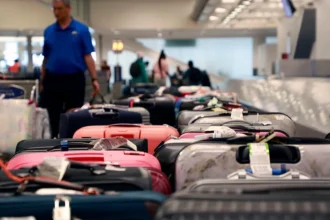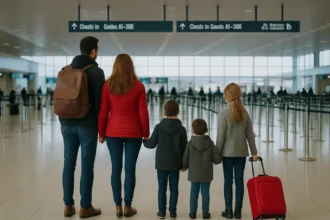Traveling with your partner can be magical—or it can test your relationship like nothing else. In fact, a 2023 global survey of over 2,000 couples found that 73% consider travel the ultimate relationship challenge. Whether it’s navigating a foreign city, handling delayed flights, or arguing over where to eat, travel as a couple throws you into a unique pressure cooker.
But with the right mindset and preparation, travel can actually strengthen your bond. Here’s your detailed, research-backed guide to surviving (and thriving) while traveling as a couple—with plenty of real-world advice, psychology tips, and lesser-known hacks.
1. Talk Money Before You Pack
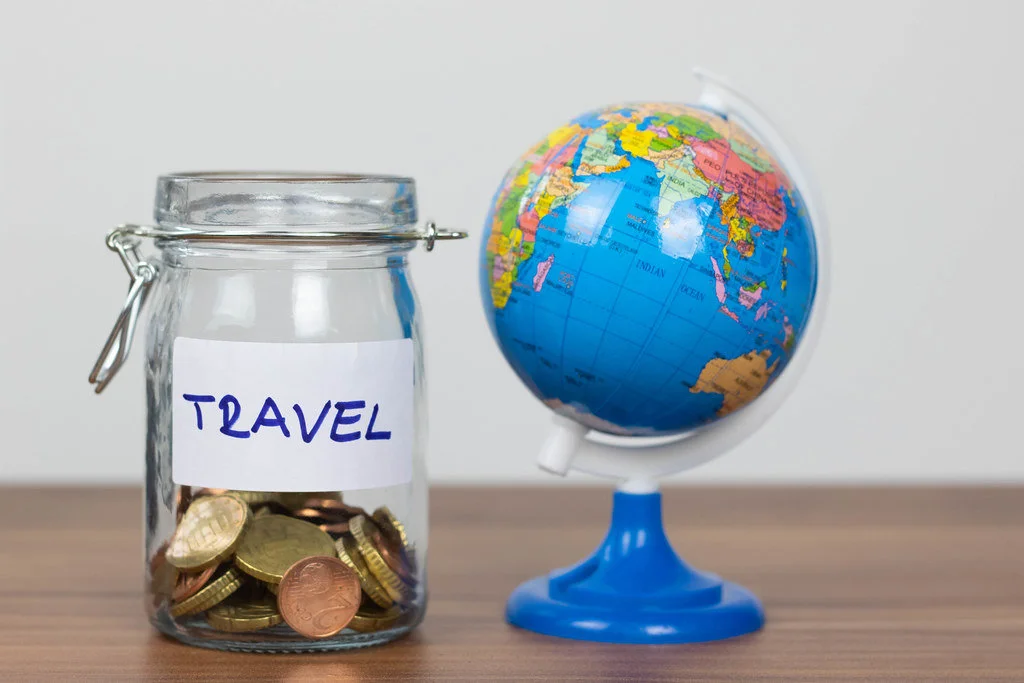
One of the most common relationship stressors—at home or abroad—is money. Travel can magnify this. Will you splurge on a 5-star hotel or save on hostels and street food?
Pro Tip: Have a budget talk early. Financial therapist Jonathan Kolmetz recommends setting expectations: Are you OK with luxury dinners? Should one partner cover certain expenses? Use apps like Splitwise or Zeta to avoid awkward financial conversations mid-trip.
2. Identify Stress Triggers in Advance

Your partner loves tight itineraries; you love spontaneity. You thrive on red-eye flights; they need 8 hours of sleep.
Studies on travel-related stress show that mismatched expectations cause friction. Knowing each other’s “travel style” helps. Make a list of what makes each of you anxious—like getting lost, missing flights, or not knowing the local language.
Pro Tip: Create a “stress-free plan” together. Build in buffer time, download offline maps (Google Maps offline mode), and pack extra snacks.
3. Divide and Conquer—but Don’t Dictate
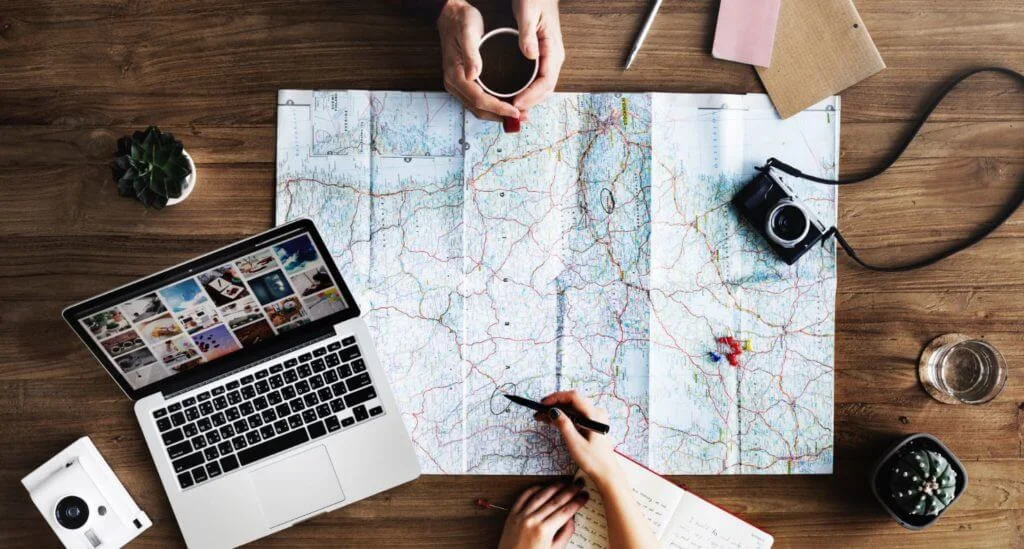
Instead of both planning every detail, divide responsibilities based on strengths. One can handle flights and accommodations; the other can plan restaurants and sightseeing.
BUT—make final decisions together. According to relationship psychologist Dr. Laura Berman, shared control increases relationship satisfaction during travel.
4. Schedule ‘Me Time’ on the Road

Couples often underestimate how draining 24/7 togetherness can be.
One study in the Journal of Personality and Social Psychology found that couples with strong independent identities are better at resolving conflict and bounce back from stressful situations faster.
Pro Tip: Build in solo moments—reading time, a solo coffee run, or separate museum visits. It resets your mental space.
5. Don’t Overplan Your Days

A jam-packed itinerary may seem exciting, but overplanning leaves little room for spontaneity—or relaxation. Travel counselor Samantha Brown says: “The best travel moments happen between the lines of a plan.”
Pro Tip: Plan 2 main activities per day and leave the rest open for detours, naps, or gelato stops.
6. Communicate—Kindly and Often

Strong communication is the bedrock of happy travel. Don’t let frustrations simmer. Practice what psychologists call “gentle start-ups”:
Instead of: “You never listen!”
Try: “I feel overwhelmed—can we slow things down a bit?”
Pro Tip: Create daily “check-ins” where you ask each other how you’re doing emotionally and physically. It builds empathy and avoids mid-trip resentment.
7. Pack Humor for the Journey

Mishaps are inevitable—flights get cancelled, languages get butchered, and buses don’t show up. But couples who laugh through the chaos are more likely to return home closer than ever.
Relationship researchers John and Julie Gottman say couples who maintain humor during arguments have better long-term satisfaction.
Pro Tip: Turn trip fails into inside jokes. Humor = bonding.
8. Optimize Sleep—Even if It Means Sleeping Apart

Sharing a bed in a new place sounds romantic… until one partner is snoring or hogging the blanket. Poor sleep = grumpy mornings and low patience.
Pro Tip: If you’re light sleepers, book rooms with two beds or bring sleep aids (earplugs, white noise apps). Rested couples fight less.
9. Let Tech Do the Work
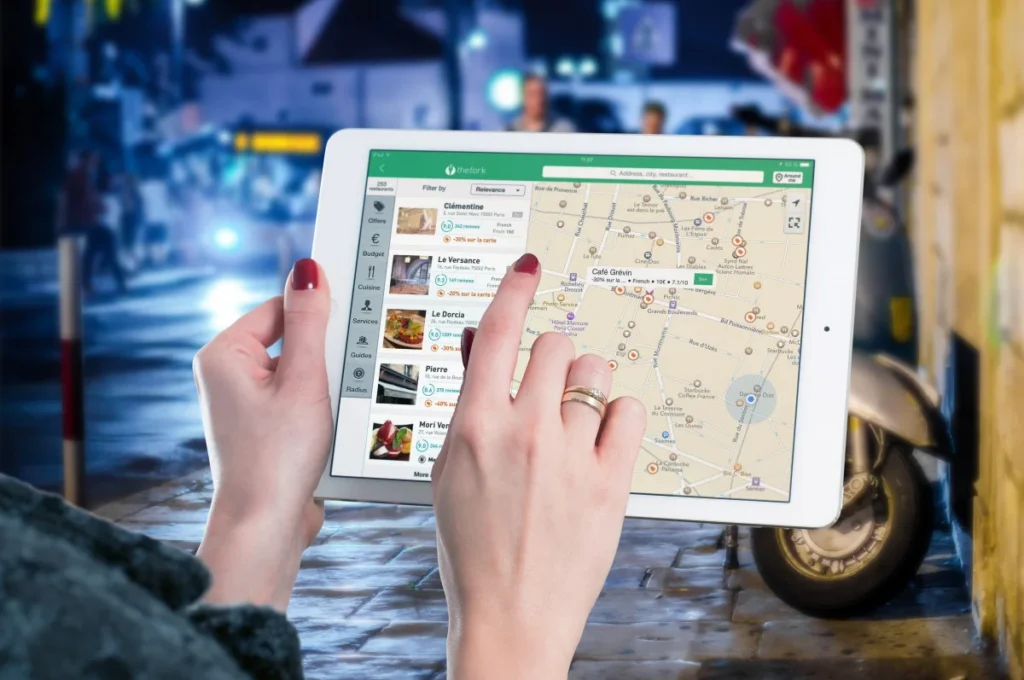
Travel apps can solve problems before they start. Try:
- TripIt – Organize flights, hotels, and bookings.
- Splitwise – Track shared expenses without awkward convos.
- Wanderlog – Collaboratively plan day-to-day activities.
- PackPoint – Helps each partner pack with no forgotten chargers.
10. Prepare for Emergencies (Calmly)
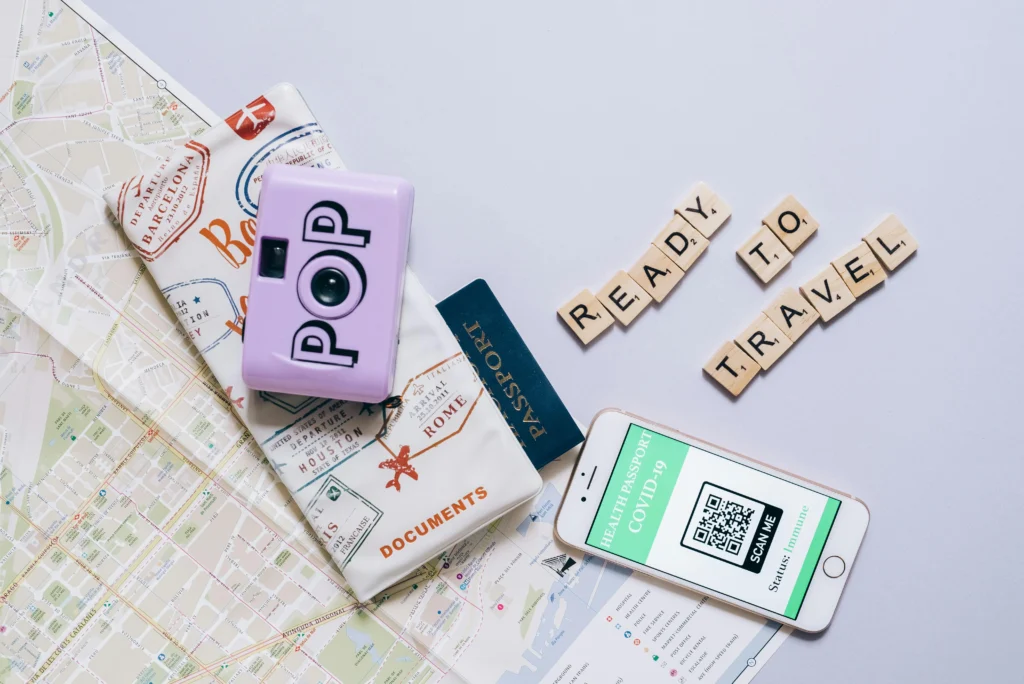
A missing passport, food poisoning, or cancelled flight can ruin a trip—or deepen your bond depending on how you handle it.
Pro Tip: Always have:
- Digital and printed copies of documents
- Backup hotel options
- Emergency contact numbers
- Travel insurance that covers medical emergencies
Psychology Behind Couple Travel

Here’s the science behind why travel is such a test:
- Increased Decision Fatigue: Traveling = hundreds of micro-decisions a day. That can wear couples down quickly.
- Mirror of the Relationship: Travel reveals how well couples communicate, resolve conflict, and handle change.
- Oxytocin Boost: Exploring new places together triggers a release of bonding hormones. The excitement can rekindle romance.
Real Tips from Real Couples
Reddit, Twitter, and travel forums are goldmines for battle-tested advice:
“Schedule one ‘free’ day with no agenda. It’s a sanity saver.”
“We swap days leading decisions. Monday is her day, Tuesday is mine. Fewer arguments, more fun.”
“Create a ‘no blame’ zone. If something goes wrong, solve it first—complain later (or never).”
Bonus: The Couple Travel Toolkit
| Tool | Why It Helps |
|---|---|
| Shared Spotify playlist | Set the mood; kills silence on long drives |
| Travel journal/photos | Helps reflect, laugh later, and relive memories |
| Portable Wi-Fi device | Keeps you connected, especially for solo time |
| Secret surprise plan | A sunset, picnic, or treat = instant mood booster |
| Shared notes app | Plan, budget, and stay organized together |
Final Word
Travel as a couple can bring out the worst—but it also brings out the best. You discover how you each handle stress, joy, discomfort, and delight.
So before you zip your suitcase, remember: a little communication, a dose of humor, and lots of empathy can turn your travels into the best chapter of your love story.
Because the couple who travels well together? They’re unstoppable.




